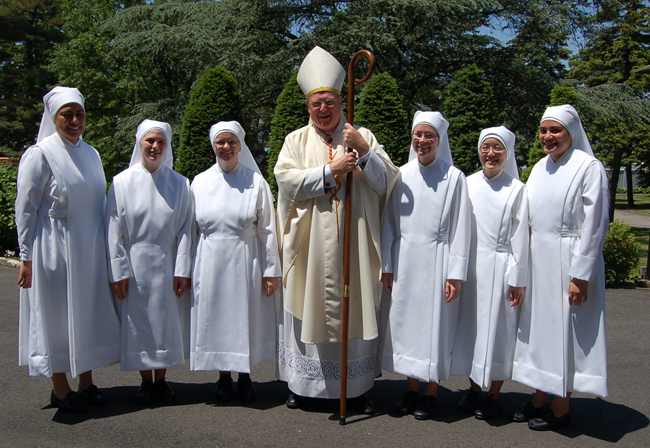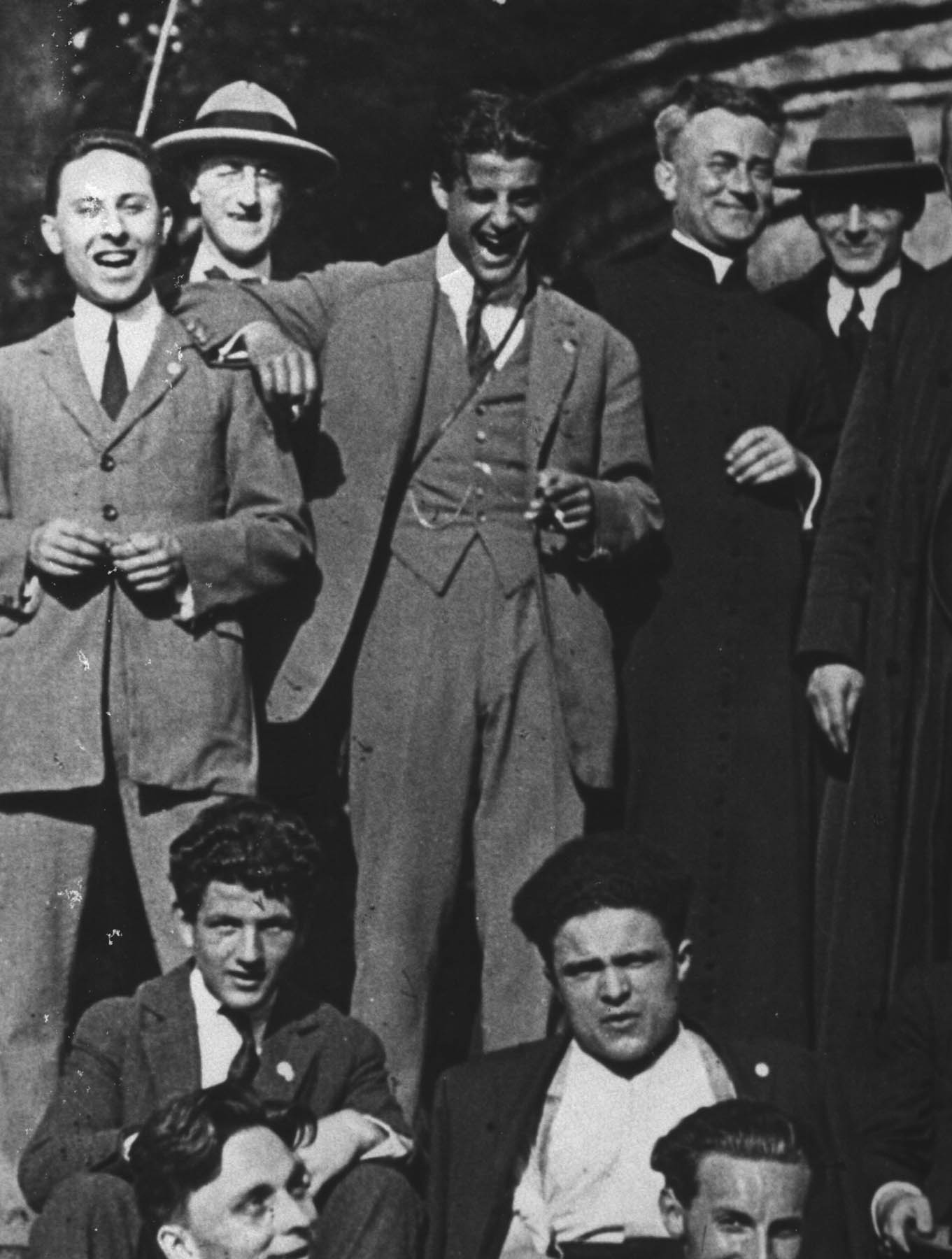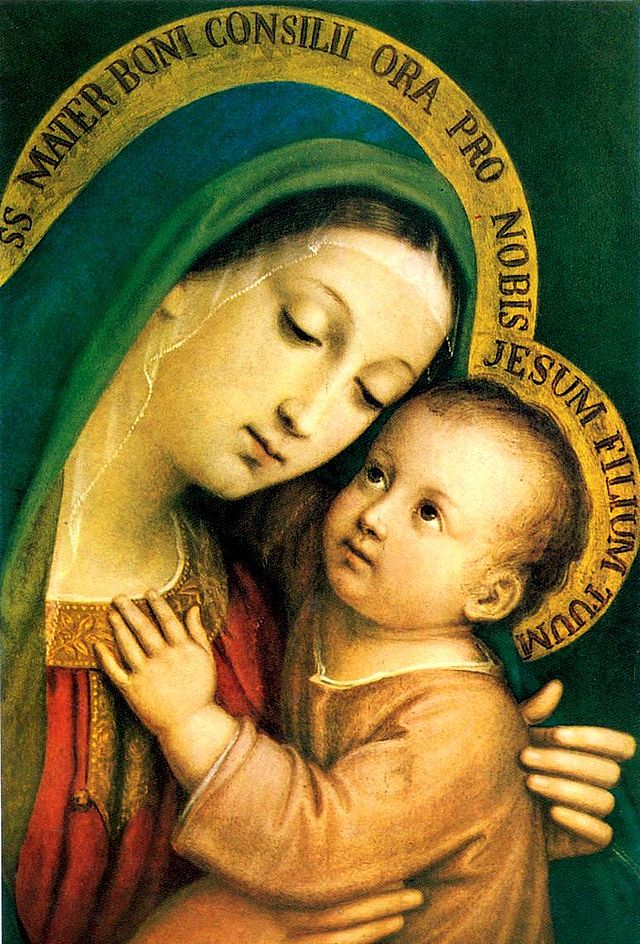I’m struck every year by the timing of this feast, celebrating the Holy Family.
It comes on the first Sunday following Christmas, when a lot of us have started to overdose on family. In fact, after the parties and cooking and visiting and obligations and expectations and disappointments, some of us have had about as much “family” as we can take. Parents are wondering when the kids go back to school. A little togetherness goes a long way – for every generation.
But then comes this feast. We are challenged to look at what it means to be family. And our eyes turn toward the Christmas crèche, the nativity scene.
During this time of year, we tend to sentimentalize the Holy Family – they become figures of plaster and paper, not flesh and blood. But we forget: they weren’t that different from us. They were holy, yes. But they were also human.
The story of the Holy Family is the story of life not always turning out the way you expected. It’s the story of a teenage mother, conceiving a child before she was married. It’s the story of an anxious father, confronting scandal, planning on divorce. It’s the story of a family forced to become refugees, living as immigrants in the land that once held their ancestors as slaves. As we heard in today’s gospel, it’s the story of a missing child, and days of anxious searching by his parents.
But there is even more. Mark’s Gospel describes an incident in which the relatives of Jesus were so alarmed, they thought he had lost his mind, and set out to seize him. Not long after came his violent death – one his mother watched with helplessness and almost unimaginable sorrow.
This family was holy. But it was also human. We need these reminders. Especially now.
The Church calendar shows us that the Christmas season is one of light – but also of shadow. The day after Christmas, we celebrate the feast of the first martyr, St. Stephen. Then a couple days later, we mark the feast of the Holy Innocents, the children slaughtered by Herod. The joy of Christ’s birth is suddenly tempered by tragic reminders of what the Incarnation cost. And the Holy Family shared in that. I saw that, vividly, just after Christmas.
A parishioner posted on Facebook some images of our Midnight Mass on Christmas Eve. They were beautiful. But I was struck by something that hadn’t occurred to me. In the pictures, I noticed, the light shines brightly on this nativity scene—the Holy Family and baby Jesus. But a few feet away, very close, it shines just as brightly on the crucifix, and the dying Christ. In the stable, the mother Mary looks down at a life beginning; at the foot of the cross, she looks up at a life ending. It is just a few steps here from the wood of the manger to the wood the cross. But in so many ways, the two singular events are inseparable. One led inevitably to the other. Joy and sorrow are almost side by side, linked by sacrifice, by faith, and by love. It is the story of our salvation. And it is the story of the Holy Family.

The juxtaposition of those two images in this church, the crèche and the crucifix, serves as a powerful lesson for this feast. We realize that when we speak of the Holy Family, we speak of a family that struggled and suffered, like so many of us.
But: this family also knew profound hope.
They trusted completely in God. They call all of us to that kind of trust. And they are with us. In our own time, they stand beside all who worry, who struggle, who search, who pray.
The Holy Family stands beside parents anxious about their children, worrying for their welfare.
They walk with immigrants and refugees separated from those they love.
They comfort teenage mothers and single parents.
They console the prisoner, the outcast, the bullied, the scorned—and the parents who love them.
And they offer solace and compassion to any mother or father grieving over the loss of a child.
This Christmas, they weep with the parents of Newtown and Sandy Hook.
The Holy Family shares our burdens. But they also uplift us by their example. Jesus, Mary and Joseph were never alone. They endured through the grace of God.
They prayed. They hoped. They trusted in God’s will.
We might ask ourselves where we can find that kind of peace and purpose in our own families, in our own lives.
One answer is in Paul’s beautiful letter to the Colossians.
This passage that we hear today is sometimes read at weddings. Like Paul’s Letter to the Corinthians, it speaks eloquently of love.
But Paul wasn’t writing about romantic love. This letter is about how to form a healthy and holy Christian community.
And from his words, we can draw lessons about how to form a healthy and holy Christian family.
Put on compassion, Paul tells us. Kindness. Lowliness. Meekness. Patience. Forgiveness. And love.
It is all that simple — and all that difficult. I’m sure the Holy Family had moments when living those virtues seemed hard, or even impossible. But they did things most of us don’t. They listened to angels. They dreamed.
And they gave themselves fully to God.
They made of their lives a prayer.
When we find ourselves overwhelmed, we need to remember where we look today and remember to look toward the crèche. There is our model for living: Jesus, Mary and Joseph. But we need to see them in full, remembering the closeness of the cross. That was their life and it’s ours, too. Yet, through all their hardships, in a time of anxiety and difficulty, persecution and tragedy—a time very much like our own–they showed us how to be people of faith, people of forgiveness, people of love.
They show us, in other words, how to be holy.
-A Concord Pastor Comments



















